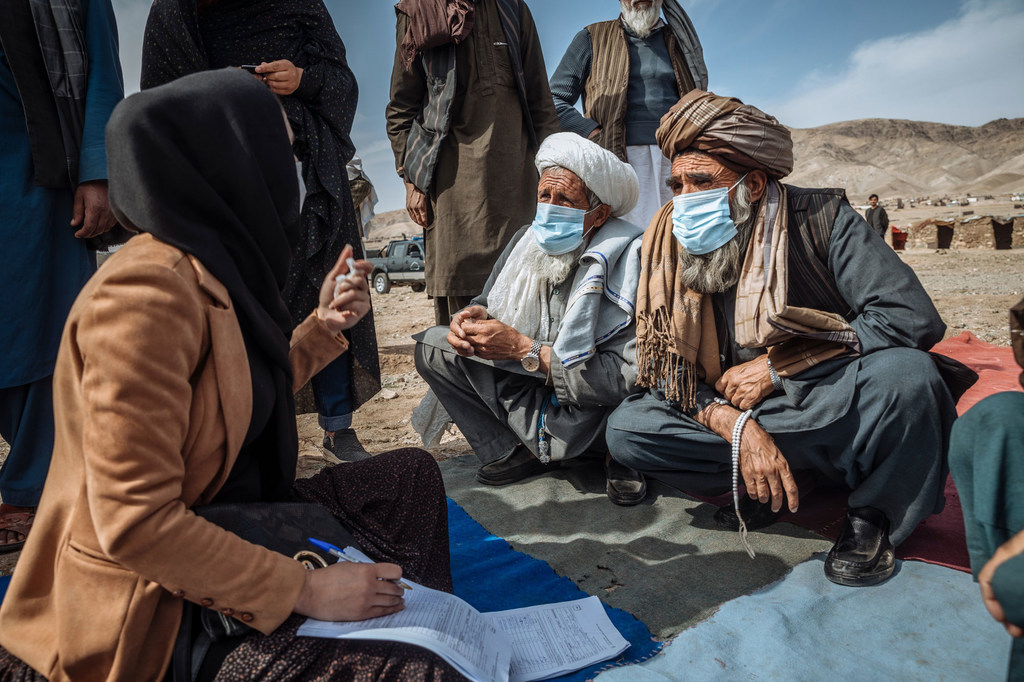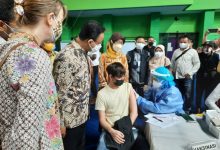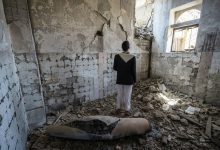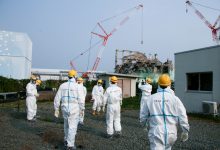Ordinary Afghans ‘broke and broken’, warns UN migration agency chief
 A stark warning for the people of Afghanistan has been issued by UN migration agency chief António Vitorino who on Thursday said that ongoing conflict, grinding poverty and climate-related emergencies, have pushed the country to the brink of collapse.
A stark warning for the people of Afghanistan has been issued by UN migration agency chief António Vitorino who on Thursday said that ongoing conflict, grinding poverty and climate-related emergencies, have pushed the country to the brink of collapse.
“We are indeed in a race against time, as emphasized by the UN Secretary-General António Guterres, to help these people prepare for winter,” said the International Organization for Migration (IOM) Director-General.
People are “broke and broken”, he insisted, after returning from a two-day visit to the country.
“More than half the population is struggling to eat, malnutrition is reaching dramatic levels, especially for many children, and over 80 per cent of the people we have surveyed say they have lost their jobs and livelihoods. Millions are living in inadequate shelters with limited access to basic services, including sanitation and health care.”
Kunduz blast
The news comes as UN Children’s Fund, UNICEF, said that nine members of one family had been killed when an explosive remnant of war, detonated inside a home in the northern city of Kunduz.
The victims included four girls and two boys, while three other children were injured in the blast, the UN agency said in a statement.
“Reportedly, one of the children, unknowingly, brought the unexploded device into the home after finding it in the field next to their house”, possibly to play with, or in the hope of selling it.
‘Door-to-door’ support
The top IOM official said that despite the best efforts of humanitarian workers – who are actively searching out the one in two Afghan families who have too little to eat and not enough fuel to stay warm – he remained “profoundly concerned” about the country’s future, as the situation worsened.
“We are going door-to-door to see what is needed and are providing shelter, blankets, warm clothing, and cash for fuel and heating,” he said. “We are planning to expand winterization assistance to every province in the country to reach 200,000 people in need.”
Mr. Vitorino also maintained that as temperatures plummet with the arrival of winter, yet more people would be forced to leave their homes in search of shelter and support.
Economic freefall
Long before the Taliban takeover on 15 August, humanitarians repeatedly urged the international community not to ignore the plight of ordinary Afghans.
Today, the situation has become even worse, with the country’s people now facing “conflict and insecurity…an economy in freefall, severe drought and the COVID-19 pandemic”, Mr. Vitorino said.
Latest IOM data indicates that 5.5 million people are now internally displaced inside Afghanistan. This includes more than 670,000 who have been forced to leave their homes so far this year, 60 per cent of whom are children.
Highlighting the serious impact of climate change on Afghanistan’s people and its role in forcing people to abandon their homes, Mr. Vitorino said that some seven in 10 people nationally had been impacted by drought and flooding. “Crop failures are a reality, and an economic collapse would be devastating,” he insisted.
Deportation pressure
Increasing returns to the country have also compounded the humanitarian challenges, the IOM chief said, pointing to the more than one million Afghans who have returned from Iran and Pakistan this year.
“The majority were deported, returning to Afghanistan often broke and broken, in need of health support, food and rest,” he said. The task of reuniting with family and reintegrating into communities – especially for those who have been in Iran or Pakistan for years – is tremendously difficult, considering the high levels of unemployment and food insecurity.”
To help those most in need in the medium to short-term – and to protect decades of gains from being lost – Mr. Vitorino called for the protection and promotion of people’s jobs, “especially those of Afghan women… all interventions, aid and support must embrace and empower the women and girls who are indispensable to the future of Afghanistan. The country will struggle to attain peace, stability and development without their active inclusion and contributions.”
The UN agency has already implemented risk reduction and early recovery measures across Afghanistan, Mr. Vitorino explained, highlighting critical flood protection operations and farmland productivity-boosting projects.
Terror attack condemned
In a related development, the UN Security Council has condemned a deadly terrorist attack on a hospital in the Afghan capital on Tuesday which left dozens killed and injured.
The attack against the Sardar Mohammad Daud Khan Hospital was claimed by Islamic State in Khorasan Province (ISKP) “an entity affiliated with Islamic State in Iraq and the Levant (ISIL/Da’esh)”, the 15-Member body said in a statement on Wednesday.
“The members of the Security Council expressed their deepest sympathy and condolences to the families of the victims, and they wished a speedy and full recovery to those who were injured,” the statement continued, reaffirming the Council’s stance that terrorism “constitutes one of the most serious threats to international peace and security. Deliberately targeting hospitals and medical personnel is especially abhorrent and must be condemned.”



